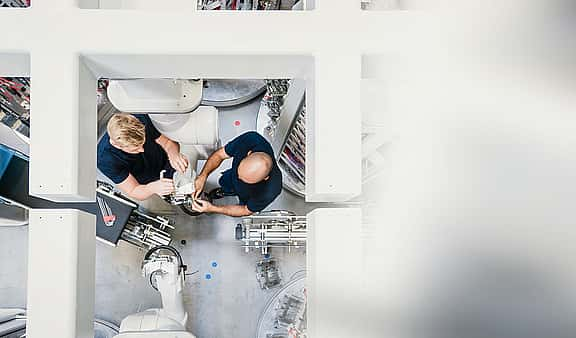The budget in October 2021 aimed to help businesses get back on their feet and secure economic recovery so a focus on SMEs was essential. The Government took some action to improve the SME landscape and promote entrepreneurship. Part of the motivation was the clear need to broaden the corporation tax base, changing the current dependence on tax from the multinationals. Time will tell how effective this budget will be for SMEs who support about 1.8million jobs.
The main elements concerning SMEs in Budget 2022 are outlined below.
Corporation Tax
A pre-budget day announcement confirmed that 12.5% corporation tax will still apply to the c.160,000 SMEs in Ireland. This is a very important benefit, especially as Irish businesses look to compete on the international market.
Covid Related Measures
Covid still looms large on the landscape and some emergency measures have been extended to help combat challenges for businesses.
The Employment Wage Subsidy Scheme (EWSS) will now run until April 2022 and not fall off the edge of a cliff as feared. The relief will be tapered and the current structure of two rates (€151.50 and €203) will both be replaced by a flat rate of €100 for March and April 2022. For those two months the full employers PRSE rate will apply instead of the 0.5% reduced rate. January 1st 2022 is the cut off date for new entrants to the scheme.
The tourism and hospitality sector can take advantage of the reduced 9% VAT rate until the end of August 2022. There is also some relief in the form of extending the commercial rates waiver until the end of 2021 which will help arts, hospitality and tourism-related businesses. This was originally planned to cease at the end of September 2021.
Start Up Businesses
Corporation tax relief for small start-up companies has been extended to 2026, with a 5-year qualification window. This is intended to directly target businesses which are in a position to grow and create and maintain employment. The period for which the relief is available has also been extended from three years to five years. This will give businesses an additional two years to get their feet firmly underneath them and reduce the number which don’t survive. This should go some way to helping businesses navigate through the impact of Covid-19.
Employment Investment Incentive Scheme (EIIS)
The Employment and Investment Incentive Scheme has been extended for a further three years to 2024. The EIIS is intended to attract early-stage funding into new and innovative businesses by providing income tax relief for investors in certain businesses. Some technical elements of the scheme have been relaxed to make it more attractive to investors and keep investment within the country.
Innovation Equity Fund
A new €90 million Innovation Equity Fund has been introduced which will invest in early-stage companies with potential to grow and scale. This fund should fill some of the funding gaps which the proposed changes to the EIIS may not plug. The use of this funding is to be consistent with priorities such as supporting female entrepreneurship and climate change initiatives. More clarity is expected on this when the scheme is launched early in 2022.
Digital Transition Fund
€10 million has been added to the Digital Transition Fund to help businesses, especially SMEs to move online and digitalise. This includes the use of AI and data analytics.
€3 million has been allocated to establish several European Digital Innovation Hubs which it is hoped will play a critical role in facilitating the digitalisation of Irish SMEs across sectors and regions.
LEOs
The Local Enterprise Offices (LEOs) have been allocated an extra €2 million to provide more training to SMEs to adapt and take action on climate change and accelerate digitalisation.
Skillnet Ireland
As the economy continues to recover, talent development remains vital in ensuring businesses are prepared for future challenges, including rapid digitalisation and climate action. Ensuring Ireland has a robust talent pipeline will be instrumental in growing FDI investment in 2022 and beyond. To this end Skillnet Ireland, which is the Government’s business support agency, has received exchequer funding of €42 million for 2022. This will enable the expansion of programmes in digital transformation, SME leadership development and business innovation.
Tax Debt Warehousing Scheme
This scheme will be expanded to allow self-assessed income taxpayers with employment income who have a material interest in their employer company to warehouse income tax liabilities relating to their Schedule E income from that employer company.
Grenke Ireland provides a leasing finance option to support businesses as they develop and grow in their sectors. Is your plan is to thrive in 2022? Are you investing in new technology or equipment to support that growth? If the answer is Yes, talk to a Grenke advisor today. Your trusted financial growth partner.











